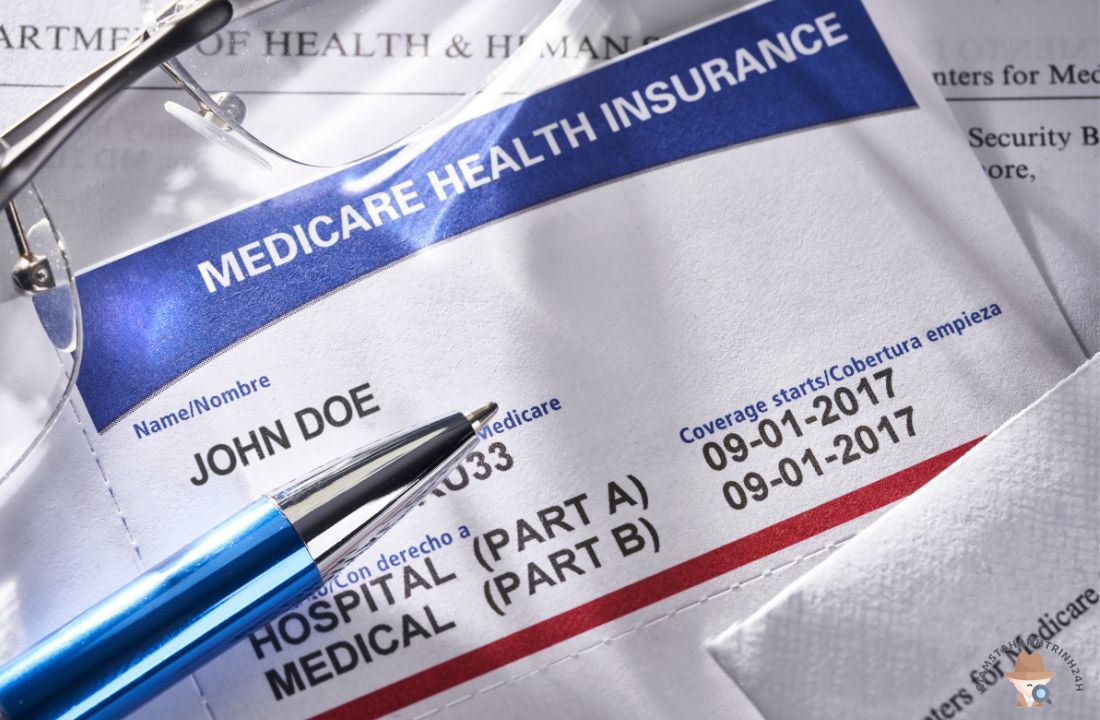As the cost of healthcare continues to rise, having insurance coverage for medical expenses has become a necessity. In today’s world, accidents and illnesses can happen at any time, and without proper insurance, the financial burden can be overwhelming. This is where insurance medical services come in – providing individuals and families with the necessary protection and peace of mind when it comes to their health and finances.
In this article, giamsathanhtrinh24h.vn and you will delve into the world of insurance medical services, discussing what they are, how they work, and the different types available. So let’s get started!
Insurance Medical: What Is It?
Insurance medical, also known as health insurance, is a type of coverage that helps individuals and families pay for medical expenses. It works by pooling together funds from many people to cover the costs of healthcare services for those who need it. In exchange for paying a premium, the insurance company agrees to cover a portion or all of the medical expenses incurred by the insured individual.

There are various types of insurance medical plans available, including private health insurance, government-sponsored programs, and employer-provided health insurance. Each type has its own set of benefits and coverage options, but they all serve the same purpose – to protect individuals and families from the high costs of medical care.
Private Health Insurance
Private health insurance is a type of insurance medical plan that is purchased directly from an insurance company. It is typically more expensive than other types of insurance medical plans, but it offers more comprehensive coverage and greater flexibility in terms of choosing healthcare providers.
Private health insurance plans can be purchased individually or through group plans offered by employers or organizations. They often include coverage for hospital stays, doctor visits, prescription drugs, and other medical services. Some plans may also offer additional benefits such as dental and vision coverage.
Government-Sponsored Programs
Government-sponsored programs, such as Medicare and Medicaid, provide insurance medical coverage for eligible individuals. Medicare is a federal program that primarily covers individuals over the age of 65, while Medicaid is a joint federal and state program that provides coverage for low-income individuals and families.
Medicare offers different plans, including Original Medicare, Medicare Advantage, and Medicare Supplement plans. Each plan has its own set of benefits and coverage options, but they all cover hospital stays, doctor visits, and prescription drugs. Medicaid, on the other hand, covers a wider range of services, including long-term care, dental, and vision care.
Employer-Provided Health Insurance
Employer-provided health insurance is a type of insurance medical plan that is offered by employers to their employees. It is often more affordable than private health insurance since the employer typically pays a portion of the premium. These plans may also offer additional benefits, such as wellness programs and health savings accounts.
Employer-provided health insurance plans can vary in terms of coverage and cost, depending on the size and type of company. Some employers may offer multiple plans for employees to choose from, while others may only offer one option. It is important to carefully review the coverage and costs of each plan before making a decision.
Insurance Medical Services: What Do They Cover?
Insurance medical services cover a wide range of medical expenses, including hospital stays, doctor visits, prescription drugs, and preventive care. The exact coverage will depend on the type of insurance medical plan you have, but here are some common services that are typically covered:
- Inpatient hospital care
- Outpatient hospital care
- Emergency room visits
- Doctor visits
- Prescription drugs
- Laboratory tests
- X-rays and imaging
- Preventive care (e.g., vaccinations, screenings)
- Mental health services
- Rehabilitation services
- Maternity and newborn care

It is important to note that not all insurance medical plans cover the same services, and some may have limitations or exclusions. For example, some plans may not cover certain prescription drugs or may only cover a limited number of doctor visits per year. It is crucial to carefully review the coverage details of your plan to ensure that it meets your healthcare needs.
Insurance Medical Card: What Is It and How Does It Work?
An insurance medical card, also known as an insurance ID card, is a document provided by your insurance company that serves as proof of insurance. It contains important information such as your name, policy number, and effective dates of coverage. You will typically receive this card when you enroll in an insurance medical plan, and you should carry it with you at all times.

When you visit a healthcare provider, you will be asked to present your insurance medical card. The provider will then use the information on the card to verify your coverage and submit claims for any services rendered. Depending on your plan, you may be responsible for paying a copayment or coinsurance at the time of service, or the provider may bill you for any remaining balance after the insurance company has paid its portion.
It is essential to keep your insurance medical card up-to-date and notify your insurance company if there are any changes to your personal information, such as a change in address or marital status. Failure to do so may result in delays in processing claims or even denial of coverage.
Tips for Using Your Insurance Medical Card
Here are some tips to keep in mind when using your insurance medical card:
- Always carry your card with you: You never know when you may need to visit a healthcare provider, so it’s best to have your insurance medical card with you at all times.
- Keep your card safe: Treat your insurance medical card like you would a credit card. If it is lost or stolen, report it to your insurance company immediately.
- Understand your coverage: Familiarize yourself with the services covered by your plan and any limitations or exclusions. This will help you avoid unexpected costs.
- Check for errors: Make sure all the information on your card is correct. If you notice any errors, contact your insurance company to have them corrected.
- Keep a digital copy: In addition to carrying a physical copy of your insurance medical card, it’s a good idea to keep a digital copy on your phone or computer in case you misplace the physical card.
Insurance Medical Exam: What Is It and Why Is It Important?
An insurance medical exam is a health screening that is required by some insurance companies before they approve an individual for coverage. The purpose of the exam is to assess the applicant’s overall health and determine their risk level for potential medical expenses.

The insurance medical exam typically includes a review of the applicant’s medical history, a physical examination, and laboratory tests. The results of the exam will help the insurance company determine the premium amount for the individual’s coverage. Those who are deemed to be at a higher risk may be charged a higher premium or may be denied coverage altogether.
What to Expect During an Insurance Medical Exam
If your insurance company requires an insurance medical exam, here are some things you can expect during the process:
- A review of your medical history: You will be asked to provide information about your past and current medical conditions, medications, and treatments.
- A physical examination: The examiner will check your height, weight, blood pressure, and other vital signs. They may also perform a vision and hearing test.
- Laboratory tests: Depending on your age and medical history, you may be required to undergo blood and urine tests to check for certain health conditions.
- Additional tests: In some cases, the insurance company may request additional tests, such as an EKG or chest X-ray, to assess your overall health.
It is important to be honest and thorough when providing information during the insurance medical exam. Any discrepancies between the information provided and the results of the exam may result in a delay in coverage or even denial of coverage.
Insurance Medical Payments: How Do They Work?
Insurance medical payments refer to the amount of money that is paid by the insurance company for covered medical services. The payment process can vary depending on the type of insurance medical plan you have, but here are the general steps involved:
- You visit a healthcare provider and receive medical services.
- The provider submits a claim to your insurance company for the services rendered.
- The insurance company reviews the claim and determines the amount they will pay based on your plan’s coverage and any applicable deductibles, copayments, or coinsurance.
- The insurance company pays its portion of the claim directly to the provider.
- If there is a remaining balance, you will be responsible for paying it to the provider.

It is important to understand how your insurance medical payments work to avoid any surprises when it comes to your out-of-pocket costs. Be sure to review your plan’s coverage details and ask your insurance company or healthcare provider if you have any questions.
Choosing the Right Insurance Medical Plan: Tips and Considerations
With so many insurance medical plans available, choosing the right one for your needs can be overwhelming. Here are some tips and considerations to keep in mind when selecting an insurance medical plan:
- Determine your healthcare needs: Before you start looking at different plans, make a list of your current and potential future healthcare needs. This will help you narrow down your options and choose a plan that provides the necessary coverage.
- Compare costs: When comparing plans, don’t just look at the premium amount. Consider other costs such as deductibles, copayments, and coinsurance, as well as the coverage provided for those costs.
- Check provider networks: If you have a preferred healthcare provider, make sure they are in-network for the plan you are considering. Going out-of-network may result in higher costs or even no coverage at all.
- Consider your budget: While it’s important to have adequate coverage, it’s also essential to choose a plan that fits within your budget. Be realistic about what you can afford and choose a plan that provides the best value for your money.
- Read reviews: Before enrolling in a plan, read reviews from current or past members to get an idea of their experiences with the insurance company and the plan’s coverage.
Conclusion: Protecting Your Health and Finances with Insurance Medical Services
In today’s world, having insurance medical coverage is crucial for protecting both your health and finances. With the rising cost of healthcare, not having insurance can lead to significant financial strain in the event of an illness or injury. By understanding the different types of insurance medical plans available, the services they cover, and how they work, you can make an informed decision when choosing the right plan for your needs.
Remember to carefully review the coverage details and costs of each plan before making a decision, and don’t hesitate to ask questions if you need clarification. With the right insurance medical plan, you can have peace of mind knowing that you and your loved ones are protected in case of any unexpected medical expenses.
giamsathanhtrinh24h.vn

